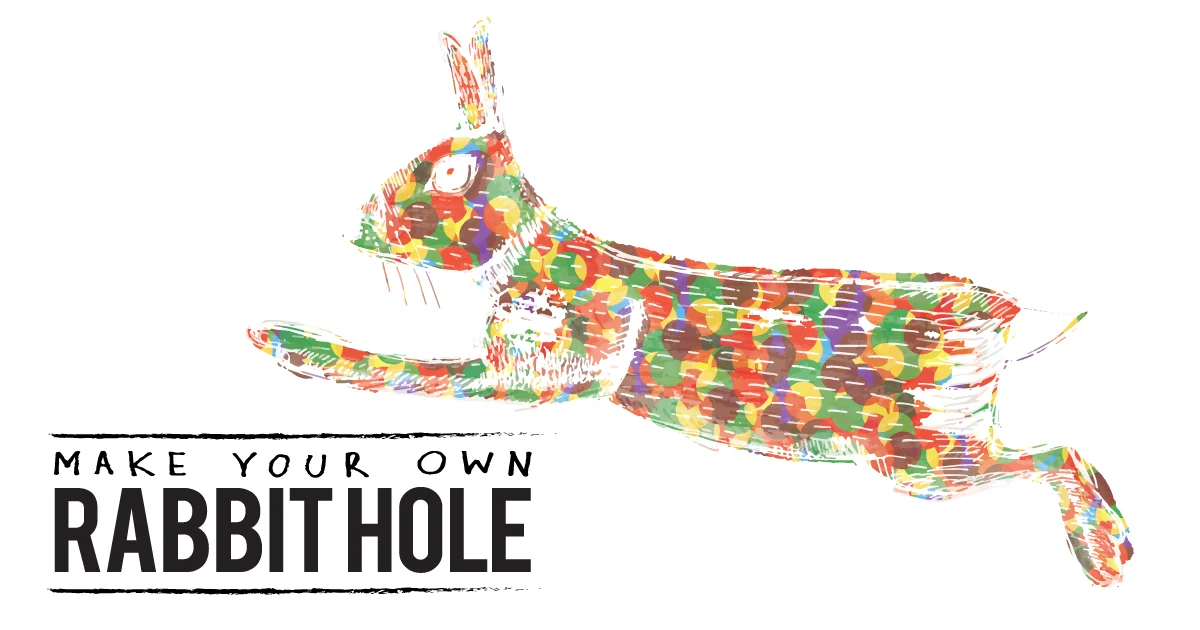Beyond the Anger Economy
/After living for what seemed like ages under a dark cloud, I saw a picture on Facebook this week that made me happy. Then the US Supreme Court ruled in favour of marriage equality, and social media exploded in a shower of colour and good vibes.
Usually, the first thing I do when I wake up is check my phone. Not to see the time—three or four goes at the snooze button tells me it's thirty or forty minutes past when I should have got up. Nah, sadly, the first thing I do is check Facebook. And these days, that's even more depressing than it sounds.
I'm not sure if it's just my feed, but these days Facebook feels like it has become one long torrent of bad news, bitter grievances and outright anger.
Every generation thinks its moment in the gaze of history is more frightening, more terrible, more dangerous, outrageous and nonsensical than any other. Yet, looking at the bilious amounts of anger, rage and discontentment spewing from every device, it's hard to imagine a worse time.
What happened? Were we always this angry?
Which is why I was so pleasantly surprised one morning this week when I checked my phone, and the first thing I saw was something positive. A friend had shared this Instagram image of a woman sitting on a train with a slogan written on the carriage wall next to her that read:
"In a society that profits from your self doubt, liking yourself is a rebellious act."
The picture by artist Caroline Caldwell (aka Dirt Worship) gave me hope. It felt like a break in the clouds.
She's right. Capitalism has done a good job of making us painfully self-conscious. For a long time we have suffered in a media culture that aggressively berates us for being too overweight, ugly, old, poor, bald, hairy, you name it—all to make us buy whatever they're selling. We are constantly being made to see ourselves in terms of lack rather than feeling content with what we have and who we are.
Nowhere is this more keenly felt than in our dissatisfaction with our own bodies. As British psychoanalyst and feminist Susie Orbach points out, the ubiquitous, homogeneous ideal has "been eroding individual self-worth for years." This feeling is, she says,
"promoted by industries that depend on the breeding of body insecurity and which then create beauty terror in so many people. Millions, literally millions, struggle on a daily basis against troubled and shaming feelings about the way their bodies appear." (Bodies, 2010)
Add to that a constant barrage of messages that call into question whether we are financially secure, sexually potent, a good mother, father, partner, wife, husband, worker, woman, man—and so on. And so we buy the snake oils, the insurance policies, the detox remedies and still feel more and more impoverished when the glow of each new purchase fades.
This is why I loved Caldwell's slogan. Plus, it made me wonder:
If liking ourselves is a rebellious act, then surely liking others—particularly people we don't know—must be an equally rebellious act.
And nowhere more so than in Australia, which seems increasingly nationalistic, misogynistic, xenophobic, racist and intolerant towards others.
Love and likes as rebellion
I think these feelings of constant inadequacy, promoted by commodity capitalism, extend well into how we feel about ourselves as a society.
In Australia, and other Western democracies as well, this sense of inadequacy manifests itself as a crisis where the majority see themselves as being increasingly encroached upon. A crisis where conservatives cry victim while painting minorities with an extra large irony-brush as 'privileged' and 'undeserving.' And it's those in power who profit most from this. In Australian politics, it seems like outrage and anger are the only renewable energy our current Government and Opposition can agree on.
But it's killing us. And others. Literally.
So what's beyond the 'anger economy'? What would social and other media look like without it? Is that even possible?
Sadly, I don't know. But yesterday, after the US Supreme Court decision in favour of marriage equality, Facebook was awash in the colours of LGBT pride and everyone was liking each other and their rainbow-tinted profile pictures, and it was a wonderful moment—like a real rainbow after years and years of bad weather.
I hope it lasts for a while.
Love wins! Kids out! I'm out.
(mic drop)
Rabbit
Many thanks to Caroline Caldwell for letting me use her image.














Painter Tracey Read talks about spending four weeks painting and drawing her way around Italy.